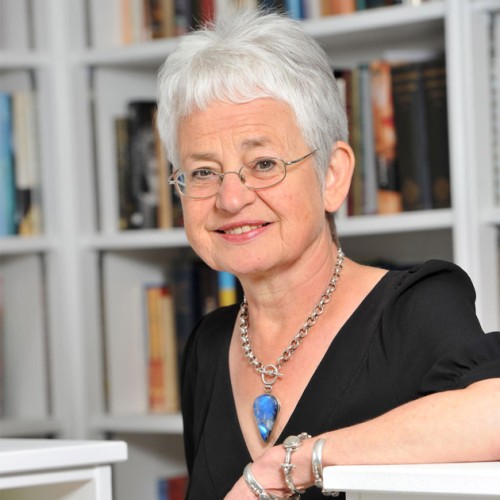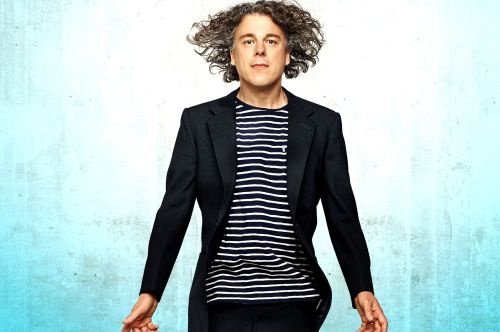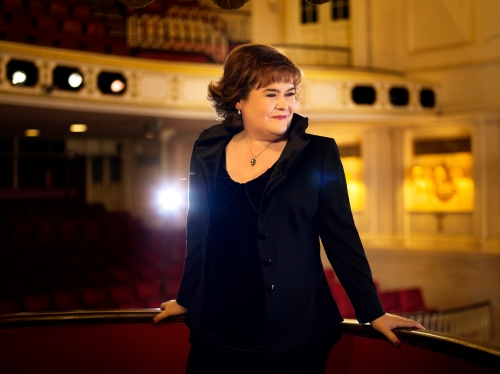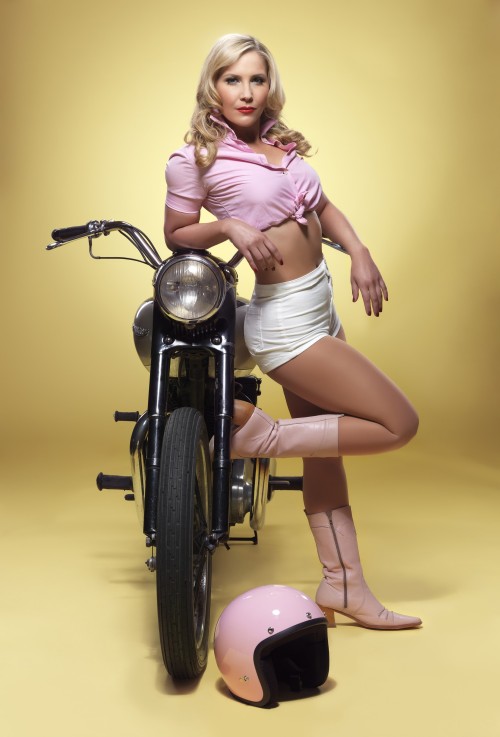A diva? Not likely. The classical superstar talks babies, press intrusion and returning to the record label that discovered her with ELLA WALKER
It’s always the pretty, talented women that get the trolls, the hate, and all the online bile.
Cheryl Cole, Jennifer Aniston, Rihanna, Miley, Lana… their clothes, relationships and careers ripped into on a daily basis, shredded by scathing tweets, spiteful editorials and plastered all over the deliberately humiliating sidebar of shame.
And it’s become normal. So normal I’m expecting the Daily Mail disciple, publicity junky and bonafide diva version of Katherine Jenkins to answer the phone, because in a Google snapshot, that’s what she’s made out to be, not the sweetness and light version that really does take the call.
To be fair, getting to speak to her was a slight struggle: several cancellations, one bitter, sacked PR company and a phone connection that kept dissolving, which meant several minutes braving Psy’s Gentlemen while on hold.
Once we’d got through that though, the Psy moment being the most traumatic, the Welsh classical crossover singer was polite, kind, succinct and private, without being peevish or cold. It was almost disappointing; a demanding, unfriendly interviewee can be rather a joy to write up.
Right now the 33-year-old lass from Neath, whose soft Welsh murmur is borderline hypnotic, is preparing for a concert alongside the National Symphony Orchestra and special guest Celeste as part of the Forestry Commission’s Forest Live series (“It’s an amazing setting,” she bubbles. “I’m very, very delighted that I’ve been invited back”). It’s just another moment to add to a year that’s proving, so far, to be giddily hectic.
In January Jenkins re-joined Decca Records, the label that first discovered her a decade ago while she was a 20-something singing teacher, and went on to produce six of her albums. The move comes after a lucrative but fairly miserable stint with Warner Bros, who wanted to capitalise on her poppier elements and drag her into the mainstream slush. It didn’t work.
It makes you wonder whether she wished she’d returned to Decca sooner. “I think sometimes you have to go away to try other things to realise what you want and what you enjoy most and the things that matter,” she admits.
“[Decca] totally understand classical music,” she adds. “I’m certainly having a fantastic time; I’ve nearly finished the album. I don’t want to changes things because they’re working. I’m in a really happy place.”
The album, her tenth, which has a nice symmetry to it, is set for release in November, but Jenkins will perform the odd track off it throughout the summer if you can’t wait.
Between the label switch and the new album she also got engaged to New York artist, actor and director Andrew Levitas in April this year, and he, by the way, has a very good beard (she split from former fiancé, TV presenter Gethin Jones, in 2011). Have they started planning the big day? “There’s a lot going on and we haven’t been engaged for too long yet, so we’re working on it but no set plans yet…”
And she’s just become an aunty for the first time too, to her sister’s two-week old son Rhys: “I know! It’s been a wonderful year in terms of the album, Decca, the OBE, and the wedding and then the baby!
Has it made her broody? “I’ve always wanted children because I have a big, close family. It couldn’t make me want children more because that’s always been a priority for me. It makes me happy to see a family growing.”
On top of endlessly flitting across the globe on tour (“You’re not excited by airports anymore, but I like getting there and singing”), from the outside one of the most challenging aspect of being a mezzo-soprano star seems to be the constant paparazzi attention. Type “Katherine Jenkins” into any search engine and pages and pages spit out images of her in stories that can be summed up as “Welsh singer wears clothes” – the latest instance being a dapper trip to Ascot in a blue number with a metallic belt.
“It’s just strange because I’m not sure anybody would get used to that,” Jenkins muses, explaining how she tries to deal with the arbitrary attention and flashing lenses. “I try and live a normal everyday life behind the scenes. When people are so interested in what’s going on in your personal life, of course it’s weird. I’m not sure I’ll ever be used to it, but I think every job has parts to it that maybe you’d prefer didn’t happen.
“The good parts of my job are amazing and I would never want to change that so you just deal with it.”
The good parts have included being awarded that OBE for services to music and charity, running the London marathon in memory of her father who died of lung cancer when she was 15, coming second on America’s Dancing with the Stars, and celebrity perks like easily getting tickets to Wimbledon on your day off (photos online soon, no doubt, and yes, we are terribly jealous).
Her career highlight though is far more grounded: “I would probably say going out to sing for the troops in Iraq and Afghanistan, that was a really special time,” and, despite the glamour and wealth that comes with classical stardom, losing your best friend is always heart-breaking.
Life coach Polly Noble, who lived in Hauxton and underwent treatment at Addenbrooke’s to try and beat cervical cancer, died in May after an eight year battle. She’d been best friends with Jenkins since 2001 when they were both trying to break into the music industry, and it as Jenkins who announced that Polly had passed away.
“Her life has affected so many people in a really positive way and I think she’ll always be a big influence to people, certainly to me, she was one of the most amazing girls, it’s tragic what happened but for the time that she was here, she was an absolute superstar,” says Katherine. “I feel very privileged to have had her in my life, even for a very short time.”
First published by Cambridge News.




